Growing Cannabis: Organic Vs Synthetic / Inorganic Nutrients
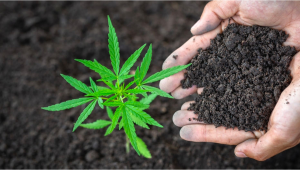
- 1. Growing with organic nutrients
- 2. Growing with synthetic / inorganic nutrients
- 3. Organic vs synthetic / inorganic: pros and cons
- 3. a. Organic pros
- 3. b. Organic cons
- 3. c. Synthetic pros
- 3. d. Synthetic cons
- 4. Cannabis and nutrients
- 5. Is it okay to use both organic and synthetic nutes at the same time?
- 6. The most trusted nutrient brands of 2023
- 7. In conclusion
Feeding with organic or synthetic fertilizers has been debated for a long time, and while organic nutrients can make your cannabis seeds smell and taste better, they’re not suited for every growing setup. Synthetic nutrients are said to result in harsh tasting flowers, but are better for certain types of setups, like hydroponic setups.
1. Growing With Organic Nutrients
Organic plant nutrients are derived from natural and living sources, they focus on working with microorganisms to deliver your plant the nutrients it needs. They are made from natural substances like manure, bat guano, bone meal, fish meal, and gypsum, they can be bought but can be also made by composting or with KNF techniques.
Because microorganisms need to break down the nutrients, you need to maintain an appropriate environment so they can work efficiently, for example, if the temperature is too low they will work slower, taking more time to make the nutrients available.
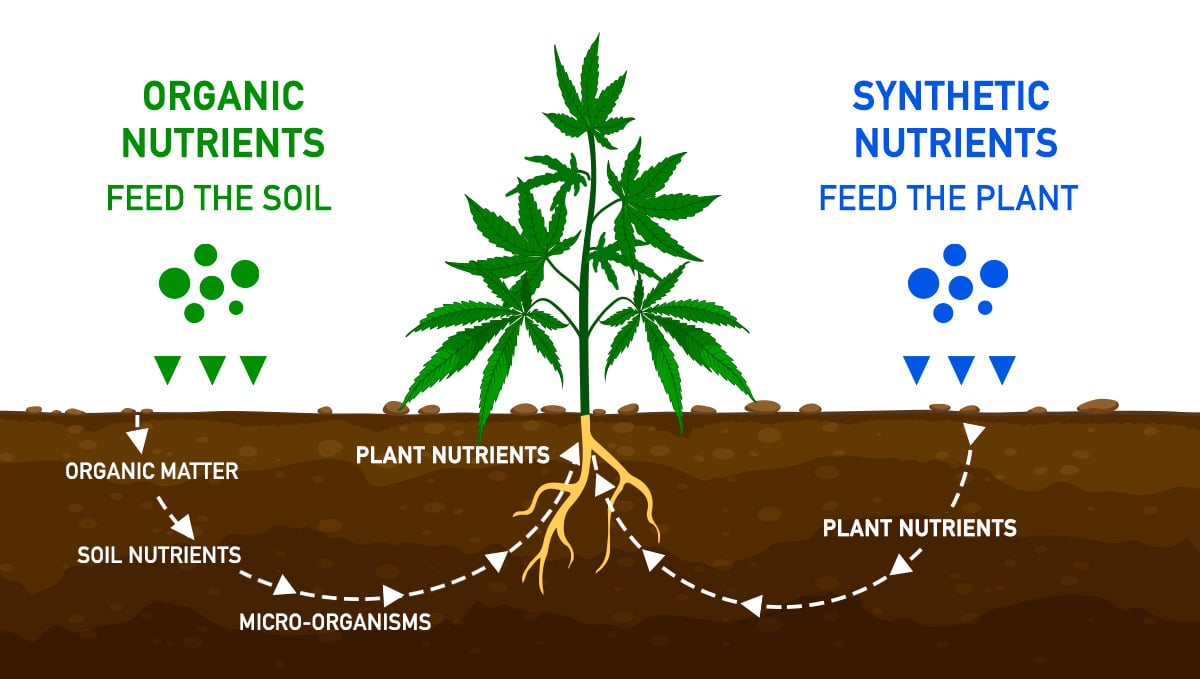
So when using organic cannabis nutrients you are taking care of the soil and the microorganisms in it, if you fail to maintain a good environment for them, they can die. Organic nutrients are usually said to be slow-release because of the time it takes for microorganisms to break down the nutrients, this can be a disadvantage when you spot deficiencies because it will take more time to fix the deficiency, although you can brew organic teas to deliver the nutrients fast.
Natural nutrients are a good way to increase the aroma and flavor of your buds when growing organic cannabis. Have in mind they’re not suited for most hydroponic setups because there is a lack of organic matter (soil) for the microorganisms to live. Also, have in mind that these nutrients are organic matter so they can attract more pests and bugs than synthetic nutrients.
2. Growing With Synthetic / Inorganic Nutrients
Synthetic or inorganic nutrients are those that are derived from minerals (and not derived from living matter) and are manufactured in laboratories with a process that extracts them from minerals, leaving the harmful impurities behind. This type of fertilizer contains minerals that are usually modified during production to produce a more effective final product. Inorganic or synthetic nutrients can be an advantage depending on your grow setup because inorganic fertilizers have a high level of nutrient availability, unlike organic nutrients which the microorganisms need to break down first. They contain a specific amount of macro and micro nutrients, usually specified in the bottle because they specify the exact amount of nutrients they contain, it is usually easier to use them.
With synthetic nutrients, you are feeding your plant directly and the nutrients are available for the plant as soon as they reach the roots, this can help you fix deficiencies really fast but it’s also really easy to burn your plants from overfeeding. Unlike organics, synthetic nutrients can be used both in soil and hydroponic setups. There are organic hydroponic nutrients, although they are harder to find and are made specifically for soilless growing.
3. Organic Vs Synthetic / Inorganic: Pros And Cons
You must be asking yourself: Why are synthetic nutrients used? Well, despite the obvious benefits organic nutrients have, both of them have their pros and cons. Choosing either one of them will depend on what is more appropriate for your growing setup, what you can afford, and what you prefer.
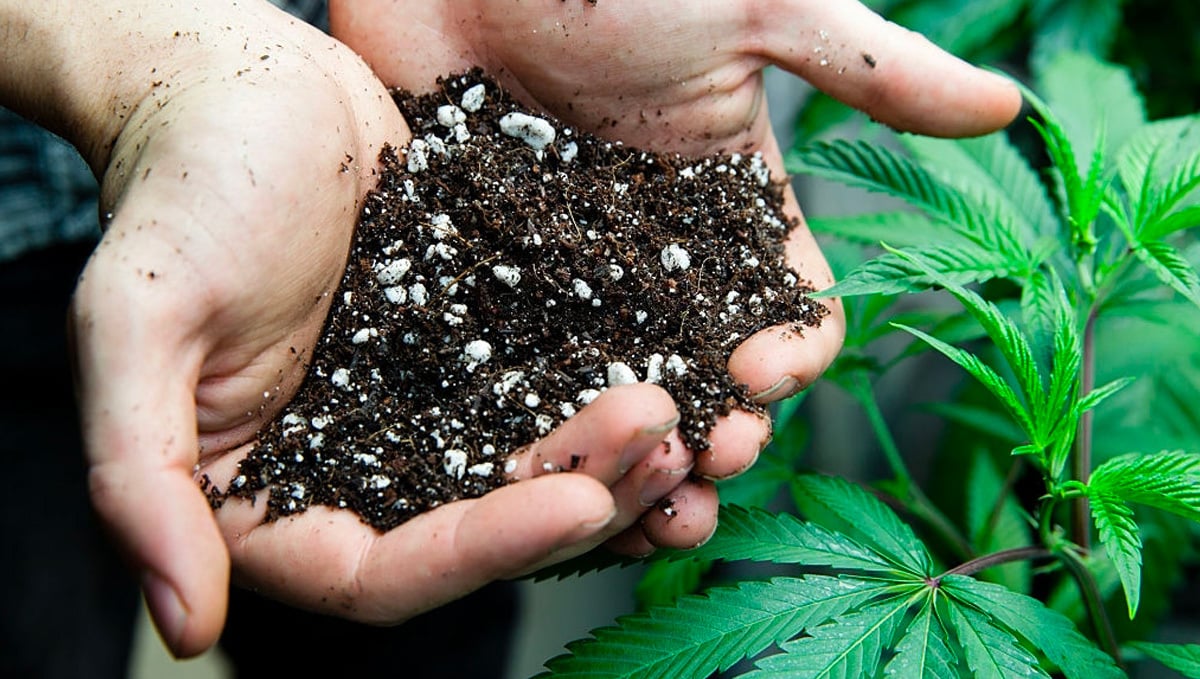
Organic Pros
• Less Chance Of Burning Due To Overfeeding
They are usually slow-release, this means the nutrients won’t be absorbed at once, lowering the chances to burn your plants.
• Beneficial Microorganisms
Taking care of the microorganisms needed for organic nutrients will not only make the nutrients available but also will benefit your plants in other ways, resulting in more growth and a healthier plant.
• Improves the structure of the soil
Soil devoid of any microbial life is easily eroded by wind or rainfall, whereas soil that contains a bunch of microbial life will have a much better overall structure and feel. Thanks to this microbial abundance, and to the earthworms and other beneficial creatures that thrive in healthy soil, a living soil takes on a squishy yet firm consistency that deals with the causes of erosion by compacting and holding together. This is boosted by the microbial life which creates a living biofilm that acts as a kind of glue, sticking the soil structure to itself
• Sustainable And Renewable
100% organic nutrients are made with natural products so the soil can be reused if taken care of appropriately, making it less harmful for the environment.
• Less Nutrient Waste and Waste Runoff
Thanks to the improved soil structure, the medium itself have a much higher capacity to hold water. This allows for the nutrients to be washed away in a much more gradual fashion. Also results in the nutrients staying in the soil for an extended period for the microorganisms to feed on, which results in you will end up wasting fewer nutrients (and saving money). This reduced runoff is a good thing, as excess nutes will not be accessible to the plants and end up returning to the water table which can have long-lasting effects on the environment.
• Enhances Flavor And Aroma Of Buds
Growers have found that organic nutrients don’t cause build-up, which makes flushing easier and you end up with more flavorful and stronger smelling buds.
• Less Chance of Overfeeding and Causing Nutrient Burn
Synthetic nutrients come with a few upsides, but one of the major issues that many beginner growers run into when using them is overfeeding which can quickly lead to nutrient burn. It is a common newbie mistake to think that adding just a little bit more than what is recommended on the bottle will lead to thriving, healthy plants that should deliver bumper crops. But, the opposite is actually true. For the most part, expert cultivators agree that you should never exceed the instruction feeding amounts and schedule, and should actually cut the required percentage of nutes to around 75% of what the bottle says. Organic fertilizers slowly release the nutrients which all but eliminates the chance of causing nutrient burn and almost all other nutrient overloading issues that can arise when using synthetic nutrient mixes.
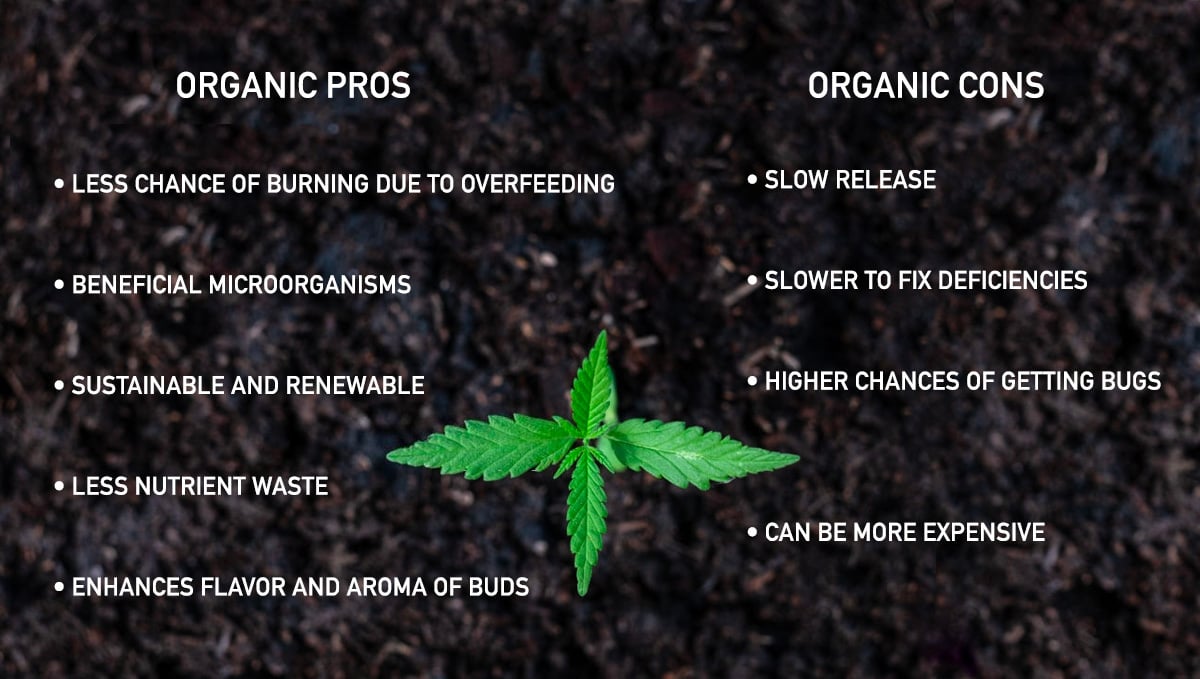
Organic Cons
• Slow Release
Organic nutrients take more time to be absorbed by the plant because the microorganisms need to break down the nutrients.
• Slower To Fix Deficiencies
Because of the slow release, when your plant shows deficiencies it can take more time to fix it unless you brew organic teas or amend the soil with powdered nutrients to avoid deficiencies.
• Higher Chances Of Getting Bugs
Bugs are attracted to organic matter and organic nutrients contain organic matter so if you don’t take precautions and check your growing space for bugs every day, you can get pests easily.
• Can Be More Expensive
Organic nutrients take longer to make, this is why they’re usually more expensive than synthetic nutrients.
• Can be Trickier to Apply to the Growing Medium
Synthetic nutrients come in a concentrated form that just has to be mixed with the right pH water and you are ready to rock. The same cant be said of many organic fertilizers. Sure, there are easy to spread organic pellets or pills available from any garden. hardware, or hydro shop, but try mixing a tonne of cow manure to a soil mix for a large outdoor grow. It won't take long for you to be dreaming of synthetic nutes.
• The Levels of Nutrients Can Vary Widely From Bag to Bag
Using compost, manure, or other natural fertilizers is an imprecise science. A handful of dung from one cow could fluctuate wide from another, or even the same cow that has begun eating a different diet. Although this can cause issues, the slow-release nature of organic fertilizers tends to balance things out pretty well. It can cause some confusion if you have just switched over from synthetic nutes though.
• Nutrient Breakdown Speed is Slowed in Colder Climates
The main deciding factor in any decomposition is the ambient temperature. This is driven by the fungal and bacterial action, all of which are sped up in warmer climates - while in colder conditions everything slows right down. Either way, cannabis plants need a temperate climate to grow which means that you shouldn't find this too much of an issue, but if the weather is cooling down and your plants are showing signs of deficiencies then it may be time to add some synthetic nutes.
Synthetic Pros
• More Control Over The Nutrients
Synthetic nutrients are made with an exact amount and ratio of minerals, this makes it easier to control the amount of nutrients you’re feeding your plant. This way you can easily provide more nitrogen in the vegetative stage and more phosphorus in the flowering stage.
• Ability To Fix Deficiencies Faster
You can fix deficiencies faster because you’re feeding the roots directly.
• Cheaper And Easier to Find
Bottled synthetic nutrients take less time to be produced, so they are found in every grow shop and because of the wide variety, they’re cheap.
• Easier to Measure and Dose
Synthetic nutrients are almost dummy-proof. Every single type on offer - from liquid to pellet, to top-dress granule - comes with an easy-to-follow instruction guide and the water solubility makes them bio-available in a matter of minutes. This is the reason why deficiencies are fixed in a much shorter period of time
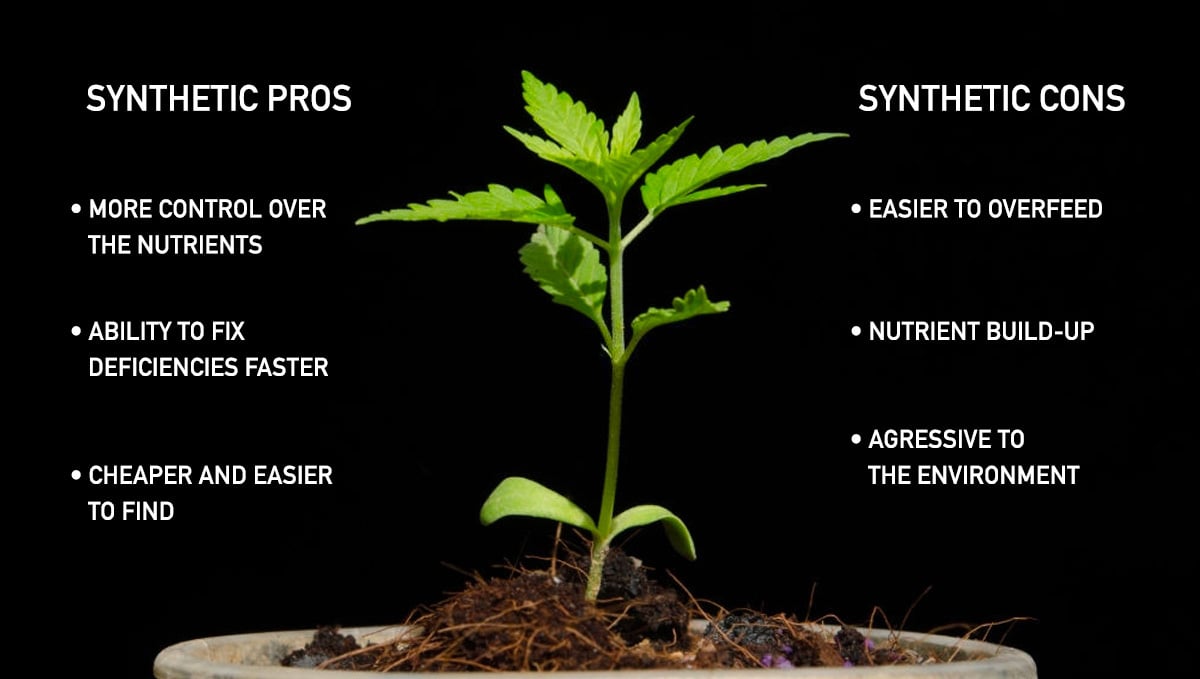
Synthetic Cons
• Easier To Overfeed
Because you’re feeding the roots directly, it is super easy (and very common) to burn your plants due to overfeeding.
• Nutrient Build-up
The minerals in synthetic nutrients can build up, this means your plant can have an excess of nutrients and can affect the smell and flavor of your buds if you don't flush properly.
• Aggressive To The Environment
Synthetic nutrients are not made from renewable resources and manufacturers use a lot of energy to produce them, which is bad for the environment.
• Can Have an Impact on the Soil Bio-Availability if Used for Long Periods
While synthetic nutes do offer almost complete nourishment to your plants, they can also have a negative impact on the fertility of the soil in the long term. They are made, in part, from sodium compounds which are known to irradicate the beneficial microbial life present in living soil. You can counter this by also adding macronutrients or beneficial fungal mixes to your growing medium, or by supplementing your feed schedule with some organic, slow-release fertilizers.
• Much More Regular Application is Needed with Some Types of Synthetic Fertilizers
One of the upsides of synthetic fertilizers is their almost instant bio-availability of them, but this can also cause a few headaches. When using most types of synthetic fertilizers, you have to feed your plants on a much more regular basis. This can be automated in many different ways like the classic drip-feeding seen on so many cannabis farms. If you are using synthetic ferts with living soil, keep in mind that the microbial life can be severely diminished over just a single season.
• Can Cause Environmental and Ecological Issues
On top of being harmful to the microbial life within living soil, synthetic nutrients can also cause pollution issues in the groundwater and nearby waterways. As the soil degrades from the loss of microbial bio-availability, the soil erodes easier, which makes nutrient loss rise even faster. The nutrients in synthetic fertilizers can cause reproductive issues in many aquatic animals, and can also cause the waterway to become lifeless if the doses are high enough.
4. Cannabis and Nutrients
It really doesn’t matter if you’re using organic or inorganic fertilizers, there are around 17 essential minerals that cannabis plants need, and 3 of those are found in air and water (carbon, hydrogen, and oxygen) but the other 14 you need to provide in the soil or as a nutrient solution.
Cannabis Plant Nutrients
| Naturally Found in Air and Water | Must Add to Soil or Nutrient Solution | |||
|---|---|---|---|---|
| Primary Macronutrients | Secondary Macronutrients | Micronutrients | Non-Essential Nutrients | |
| Carbon (C) | Nitrogen (N) | Calcium (C) | Boron (B) | Aluminum (Al) |
| Iron (Fe) | ||||
| Copper (Cu) | Selenium (Se) | |||
| Hydrogen (H) | Potassium (K) | Magnesium (Mg) | Chlorine (Cl) | Cobalt (Co) |
| Oxygen (O) | Phosphorus (P) | Sulfur (S) | Manganese (Mn) | Silicon (Si) |
| Molybdenum (Mo) | ||||
Apart from macro and micronutrients, there are other nutrients considered nonessential because plants won’t show nutrient deficiencies if they are not provided but will make a huge difference in plant growth if you do.
5. Is it Okay to Use Both Organic and Synthetic Nutes at the Same Time?
It most certainly is. Since both options come with a long list of pros and cons, which often directly oppose each other, many growers (especially outdoor cultivators) like to use a balance of both options. In the long run, plants do not give a damn where the nutrients come from, as long as there is a healthy balance of everything they need. You can combat a bunch of the issues that may arise from using just synthetic or organic by instead using a mix of both. Just remember that, for the most part, organic fertilizers work better for soil mixes, whereas synthetic nutrients will be better for hydro setups.
6. The Most Trusted Nutrient Brands of 2023
Now when we talk about the best nutrient brands of 2022, there are a couple of definite frontrunners. These brands have proven time and again to produce top-class nutes that not only ensure amazing crop growth, but are easy to use, and the results are extremely reliable bottle after bottle (or bag after bag). So let's take a look at the top cannabis nutrient brands to trust in 2022.
Advanced Nutrients
First up, we have Advanced Nutrients. This company has been around since 1999, and is renowned for not only the base range of nutes but also the synthetic cannabis-specific additives that provide optimal results and can boost plant structure and flower weight by up to 30%. The pH Perfect® Sensi Grow & Bloom offers precisely balanced nutrition for both the vegetative and flowering growth periods and is engineered with exact NPK ratios to provide the crop exactly what it needs at the right time. This has been the gold standard for base nutes for over a decade, but with the recent introduction of pH Perfect® Connoisseur® Grow & Bloom there's another (and possibly better) option available.
The Big Bud and Voodoo Juice lines are both very popular and definitely worth considering if you're looking for a cannabis-specific nutrient program. The Bloom, Micro, and Grow packs are complete three-part nutes that provide excellent results on their own, but when combined with the synthetic additives, can take your cannabis garden to the next level. This is a ground-breaking base nutrient system for sophisticated grows, and is quickly becoming a favorite of both home growers and commercial cultivators alike. Other great products include:
- Bud Ignitor and Overdrive additives can be used in the early flowering stages for increased density and overall yield weight.
- Bud Candy and Flawless Finish are two of the best flavor and aroma enhancers on the market.
- Revive is the go-to option for growers worldwide when nutrient lockout or transplant shock strike.
House & Garden
This Dutch company is well-known for its creative and innovative cannabis nutrient range that has been designed with care for the plants at the forefront. The House & Garden Nutri-Boost range is made from very refined and high-quality ingredients, allowing cannabis plants to receive the most balanced feed possible. It is suitable for both hydro and soil cannabis gardens, with three components to choose from - Base A&B, Top Shooter, and Algen Extract. The Base A&B is a two-part grow and bloom nutrient that should be used during vegetative and flowering growth periods. It provides cannabis plants with the right balance of essential macro and microelements, keeping them healthy and strong through the entire growth cycle.
The Top Shooter liquid is a cannabis additive that should be used in the last few weeks of flowering, to maximize yields and quality. It's designed to increase the size of cannabis buds and to provide plants with an extra boost of calcium, magnesium, and trace elements. But the real cherry on the House & Garden range is the Roots Excelurator additive. When this product hit the market more than a decade ago it truly did revolutionize cannabis cultivation, with cannabis growers praising it for its ability to produce plants with dense, healthy root masses like never before.
CANNA
Hailing from the European home of marijuana cultivation, The Netherlands, CANNA has long been one of the most trusted brands for weed supplements, nutrients, and additives. Look through the list of the highest-selling nutrients in both North America and Europe and you'll find CANNA constantly sprawled through the top three. Their base nutrients for hydro is split across two main lines - CANNA AQUA and CANNA SUBSTRA.
CANNA AQUA is a user-friendly range of products specifically with recirculating systems in mind, like ebb and flow or NFT. In recirculating systems its extremely important to have the balance as precise as possible, and with CANNA AQUA, growers will find this happens with ease. CANNA SUBSTRA, on the other hand, is designed for non-recirculating systems. It has been engineered to be as simple to use as possible, with only two components needed for the vegetative and flowering stages of cannabis growth.
The CANNA RHIZOTONIC and CANNAZYM range is particularly popular, as it helps to stimulate root growth and maintenance, while also improving the natural resistance of cannabis plants. Finally, CANNABOOST is one of their most popular additives and one of the highest-selling products to ever hit the cannabis cultivation market. Its suitable for use with all styles of cultivation, and can be used as a feed water additive or sprayed directly onto the crop through foliar application.
Honourable Mentions
The three options listed above are all amazing, but that's not to say that there aren't a bunch of other great nutrient companies also pumping out top-class nutes - and doing so sometimes at much more affordable prices. Other great nutrient companies include:
- GHE (General Hydroponics Europe)
- Fox Farm
- Botanicare
- Grotek
- VitaLink
- BioBizz
- Earth Juice
- CX Hydroponics
- TechnaFlora
- CyCo
- Mega Crop
- Jacks Nutrients
- Nectar of the Gods
- Lotus Nutrients
Honestly, this list is almost never-ending these days. Before you settle on any particular brand, be sure to do your research.
7. In Conclusion
Organic and synthetic nutrients both have pros and cons, and the final decision is yours of course. If you’re a new grower it can be hard to decide on one, we recommend trying both and deciding what suits you better. Make sure you understand what you need to use effectively and avoid wasting time and money.
This post was most recently updated on April 14, 2022.








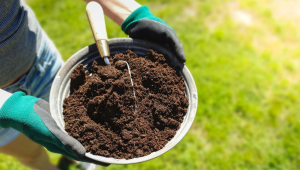
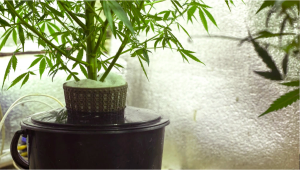

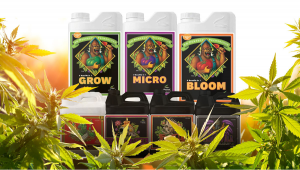
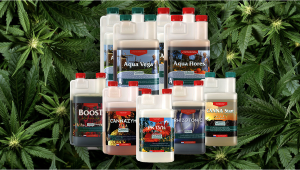


Comments